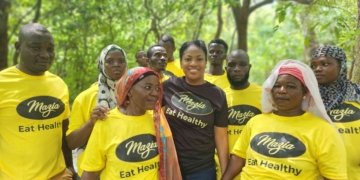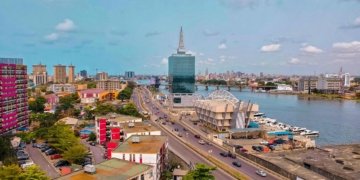KINSHASA, Democratic Republic of Congo (BG) – Neglected tropical diseases (NTDs) have long afflicted the world’s most vulnerable populations, causing immense suffering, disability, and even death.
January 30 is World Neglected Tropical Diseases Day, a day to raise awareness of the devastating impact of NTDs on the world’s poorest populations.
It is also an opportunity to rally support for the growing momentum toward controlling, eliminating, and eradicating these diseases.
Despite being preventable and treatable, these diseases persist due to poverty, lack of access to healthcare, and limited awareness.
However, progress is being made, thanks to the dedication of affected communities, governments, and global health organizations.
One such example comes from the Democratic Republic of the Congo (DRC), where community mobilization has played a key role in eliminating Guinea-worm disease.
Salomon Kosoma, a fisherman and farmer in northwestern DRC, became a community health volunteer after learning about the devastating effects of the disease, as reported by the World Health Organization (WHO) Regional Office for Africa.
He and others like him have been instrumental in detecting potential cases, spreading awareness, and ensuring that preventive measures reach even the most remote populations.
“I first heard about this disease during a polio vaccination campaign. That was in 2016,” he said.
Intrigued and concerned, Salomon decided to get involved in active case finding in his community, after completing a community health training course.
“The commitment of Salomon and other community relays attests to the effectiveness of this incentive,” Dr Renée Nsamba, epidemiologist in charge of neglected tropical diseases at the WHO Country Office in the DRC said.
Guinea-worm disease, or dracunculiasis, is a parasitic infection transmitted through contaminated water.
The disease can lead to excruciating pain, disability, and economic hardship for affected individuals and their families.
In 2022, the WHO certified DRC as having eliminated the disease as a public health problem—a significant milestone in the global fight against NTDs.
However, the threat of resurgence remains due to cross-border population movements with countries where transmission is still active.
To prevent a resurgence, health officials in DRC have reinforced surveillance efforts, training over 500 community health volunteers to detect symptoms early and educate their communities.
Public awareness campaigns through local radio broadcasts and posters in health centers have further strengthened prevention efforts.
The involvement of organizations such as WHO, the Carter Center, and the Centers for Disease Control and Prevention (CDC) has provided crucial support in maintaining DRC’s dracunculiasis-free status.
Niger Eradicates River Blindness
Beyond DRC, Niger has also achieved a significant victory against another devastating NTD: onchocerciasis, commonly known as river blindness.
This parasitic disease, transmitted by black flies, can lead to severe itching, skin discoloration, and permanent blindness.
In 2025, WHO officially recognized Niger as the first country in Africa to eliminate onchocerciasis, marking a historic achievement in global health.
“Onchocerciasis has long caused immense human suffering. It has also impeded the economic development of affected communities, driving people away from rivers, which are often lifelines for livelihoods,” says Dr Matshidiso Moeti, WHO Regional Director for Africa.
“Niger’s success ends this burden for its people. It also positions Niger as a model for the elimination of neglected tropical diseases in Africa. The country previously demonstrated its leadership in public health, by eliminating Guinea-worm disease in 2013. Today, it takes another historic step forward,” Moeti said.
Niger’s success was the result of decades of commitment. Beginning in the 1970s, the country implemented vector control strategies, such as spraying insecticides to reduce the population of black flies.
Later, the mass drug administration of ivermectin, which pharmaceutical companies donated, helped further reduce disease transmission.
In collaboration with WHO and nonprofit partners, the government conducted extensive epidemiological and entomological surveys to ensure the parasite had been eliminated.
The results were clear: onchocerciasis prevalence dropped from approximately 60% to a staggering 0.02%.
Eliminating an NTD is not only a health achievement but also an economic and social one.
River blindness, for example, has historically forced communities to abandon fertile land near rivers, impacting agriculture and livelihoods.
With Niger’s success, affected communities can now return to their lands without fear of infection, improving both public health and economic prospects.
These milestones in DRC and Niger highlight the power of community-led action, international collaboration, and persistent effort in tackling neglected tropical diseases.
While challenges remain, these victories serve as a reminder that eliminating NTDs is possible.
Continued investment, awareness, and collaboration can ensure that no one suffers from these preventable diseases in the future.
What are neglected tropical diseases?
NTDs are devastating diseases that affect an estimated 1 billion people worldwide. These diseases disfigure, disable and can be fatal, causing immense suffering.
By most commonly affecting the world’s most isolated and marginalized communities, NTDs perpetuate poverty, keeping adults out of work and children out of school.
But progress is possible and achievable. NTDs are preventable and treatable, and a rich ecosystem of partners worldwide are working together to tackle them.
Together, their collaboration represents some of the best and longest-standing in global health.
























